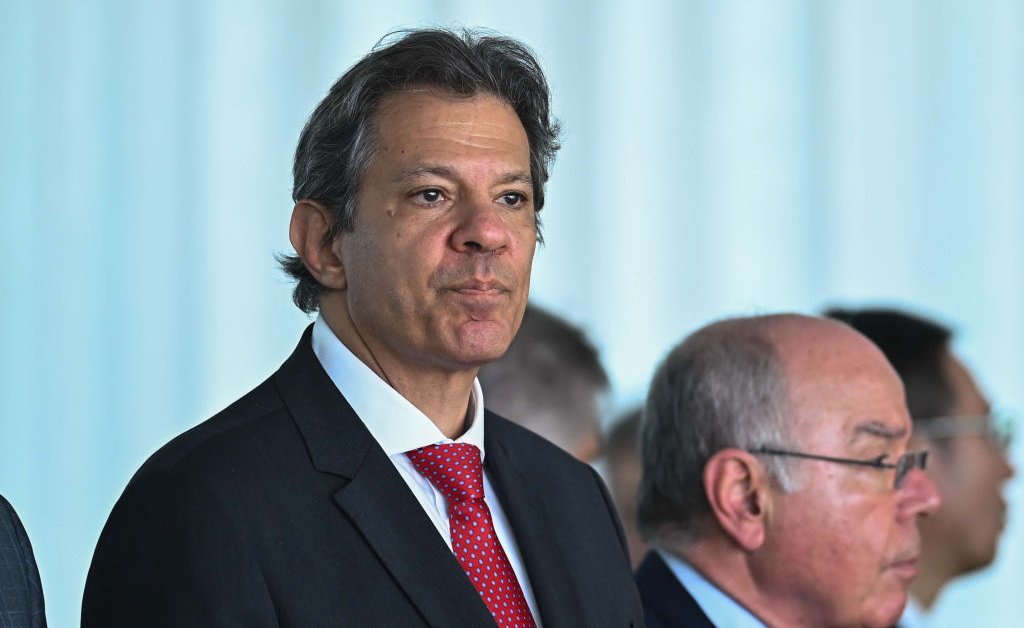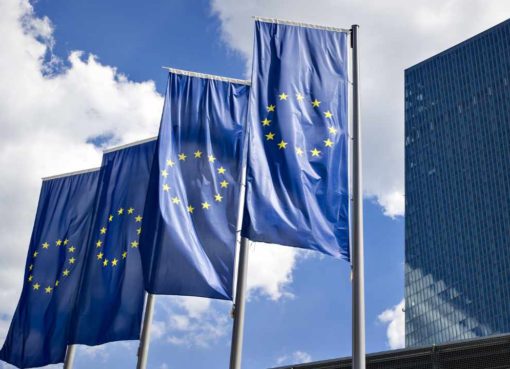For years, climate advocates have argued that slowing emissions requires governments to embed climate throughout government policy—including and especially economic policy. In few places has such an approach taken greater hold than Brazil.
When I interviewed Brazilian Finance Minister Fernando Haddad on the sidelines of the Milken Global Conference in L.A. in May, he was on a tour of the U.S. to promote his country as a home for data centers and immersed in urgent conversations about global trade. But, as I learned, climate and the energy transition weren’t far from his mind. We discussed a new financing mechanism for forest protection, a new domestic carbon price in Brazil, and how climate efforts will shape trade. Even his data center pitch incorporated climate change and the ability of the country’s electricity grid to sustainably meet AI’s power demand.
“One of our greatest potentials is precisely the fact that we’ve mapped out our clean energy and it can be combined with a smart digital policy,” he says.
In this odd historical moment, it can be difficult to discern which way the energy transition winds are blowing. Haddad’s work offers an important case study. Brazil is an emerging market with a large export-oriented economy that maintains strong diplomatic relations across geopolitical divides. The Lula government is staying the course on green development not just because the country is vulnerable to climate impacts but because it continues to see the economic opportunity.
Brazil’s ability to anchor its economic development in the green transition is in large part a simple function of its resources. Its farm lands can be used to produce clean-burning biofuels, and its rich tropical forests serve an important ecological function. And, thanks to the country’s vast network of waterways, its electric grid largely runs on hydropower.
But it wasn’t a given that the country would choose to use its ecological resources for the better. Under President Jair Bolsonaro, the prior government allowed for rapid deforestation in exchange for quick economic gain and disregarded the global push for climate action. When Luiz Inácio Lula da Silva took office in 2023, the country made a quick pivot toward a more sustainable approach. It launched an Ecological Transformation Plan with key pillars in sustainable finance, circular economy, and development of the bioeconomy. “Government action is being adapted to those priorities,” says Haddad.
Haddad’s finance ministry serves as an indispensable node in facilitating policies like the country’s new carbon market. It works to develop mechanisms to attract capital to forest protection, and coordinates with the Brazilian National Development Bank, a key institution facilitating private investment in the country, to ensure finance is aligned with green development plans. A recently launched program, for example, relies on Brazilian public money to subsidize interest rates to restore degraded land. This federal support has helped facilitate a wave of private investment in reforestation efforts.
Read More: ‘We’re Already at the Limit’ of a Livable Climate Warns Brazil’s Marina Silva
At this moment, with the U.S. removing itself from global climate collaboration and others backtracking more subtly, many have feared the pullback will ripple. Earlier in the day Haddad had met with U.S. Treasury Secretary Scott Bessent. So, I asked him whether his green agenda posed difficulties for working with the U.S. in this tense geopolitical moment. “On the contrary, our ecological transformation policies do not affect our relationship with the U.S.,” he answered. “Companies that have interest in this agenda can come to Brazil.”
Haddad’s vision of international climate work is one of like-minded countries working together on the climate agenda and carving out their respective approaches—even as they continue to do business with countries outside the club. “I don’t believe there will be a unanimous position over the need to accelerate the ecological transformation,” he says. “But I do believe that several countries will keep their commitments.”
That thinking was a key part in developing the country’s cap-and-trade system, which was enacted last year and is in the process of being implemented. The program sets emissions reduction targets for industry and allows companies to purchase credits if they fail to reach them. Setting up a domestic program prepares Brazil for smooth trade with other countries that have implemented a carbon price—and might offer Brazil an advantage given its decarbonized grid. “The carbon market should be internationalized instead of thought of as only a national program,” he says. “We expect it to become an international framework over time.”
In the past, Brazil has been characterized as an opponent of policies that create climate-related trade barriers, including the European carbon border adjustment policy, known as CBAM, which taxes high-carbon imports. During our interview, Haddad offered a more nuanced view, saying that Brazil wants “an adjustment of the adjustment.” An aide chimed in to characterize Brazil’s approach as “constructive opposition.” If countries around the world adopt carbon pricing, Haddad says, policies like CBAM can foster a deepening in climate policy. “An international arrangement with the nations committed to green development may change the rules of the game,” he says.
To my mind, one of the hardest questions for the climate world right now is what institutions might actually be able to deliver such a consensus. The U.S. plays a central role in many of the institutions that have dominated the post-War world. And long-standing climate institutions need to manage long-standing divides.
Brazil has a seat in many of these different groups, avoiding too close alignment with any side of the rifts that currently divide much of the world. Haddad doesn’t see climate action being led exclusively by any of the existing blocs. “There’s not going to be a simple division between the clubs that are in favor or against,” he said. “There’s no unity at the G7 today, there’s also no unity at the BRICS… The environmental agenda will emerge through other arrangements.”
Brazil has an opportunity to shape whatever arrangements might emerge. The country is hosting the upcoming United Nations climate conference, known as COP30, in the Amazonian city of Belém in November. But, no matter what happens at COP30, the country has the foundation to shape the global agenda for decades to come.
To get this story in your inbox, subscribe to the TIME CO2 Leadership Report newsletter here.
This story is supported by a partnership with Outrider Foundation and Journalism Funding Partners. TIME is solely responsible for the content.




